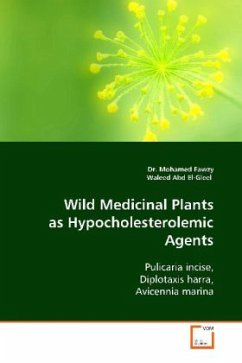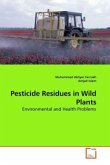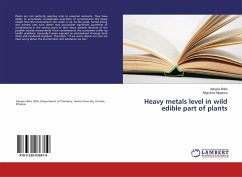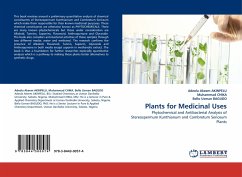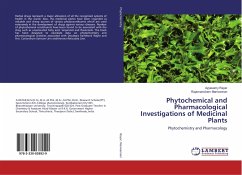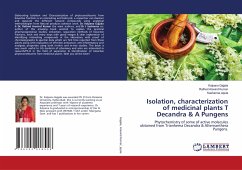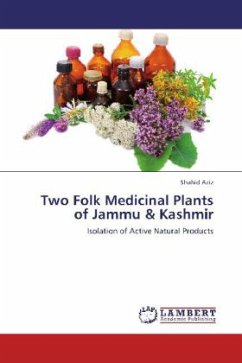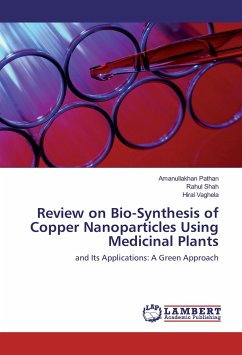The progress of civilization, intake of great amounts
of fatty diets, lack of exercise, smoking habits and
mental stress participate in hypercholesterolemia and
the resultant arteriopathies. Hypercholesterolemia is
a clinical syndrome associated with an abnormally
high plasma cholesterol level that increased
cholesterol and low-density lipoprotein (LDL)
cholesterol which known as the bad cholesterol
especially when it becomes oxidized. Many drugs and
some natural supplements are used in an effort to
lower LDL levels. World-wide interest in the use of
medicinal plants is increasing. Herbal plants are
now being effectively tried in a variety of
pathophysiological states. Studying indigenous
folk-medicinal plants is vital because such plants
are fully adapted to local environments and to
conditions compared with any introduced species. The
present book deals with the characterization of
bioactive lipids from the Pulicaria incise,
Diplotaxis harra, Avicennia marina grown wild in
Egypt. In addition the main goal of the present study
is to evaluate the possible role of administrating P.
incisa, D. harra and A. marina as hypocholesterolemic
agents by using male albino rats.
of fatty diets, lack of exercise, smoking habits and
mental stress participate in hypercholesterolemia and
the resultant arteriopathies. Hypercholesterolemia is
a clinical syndrome associated with an abnormally
high plasma cholesterol level that increased
cholesterol and low-density lipoprotein (LDL)
cholesterol which known as the bad cholesterol
especially when it becomes oxidized. Many drugs and
some natural supplements are used in an effort to
lower LDL levels. World-wide interest in the use of
medicinal plants is increasing. Herbal plants are
now being effectively tried in a variety of
pathophysiological states. Studying indigenous
folk-medicinal plants is vital because such plants
are fully adapted to local environments and to
conditions compared with any introduced species. The
present book deals with the characterization of
bioactive lipids from the Pulicaria incise,
Diplotaxis harra, Avicennia marina grown wild in
Egypt. In addition the main goal of the present study
is to evaluate the possible role of administrating P.
incisa, D. harra and A. marina as hypocholesterolemic
agents by using male albino rats.

